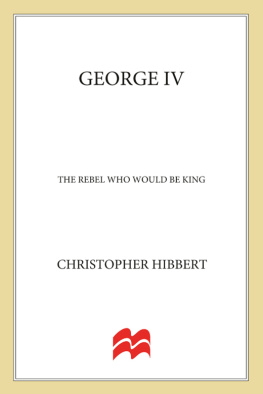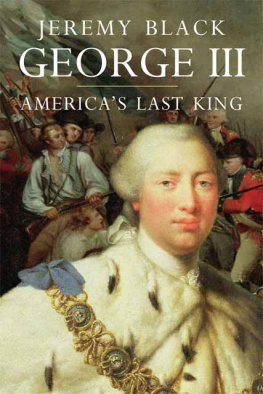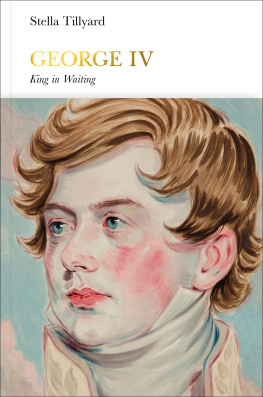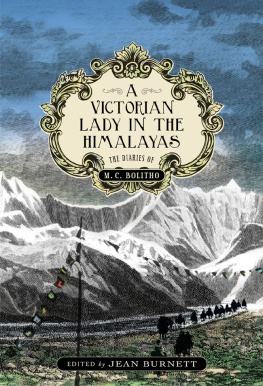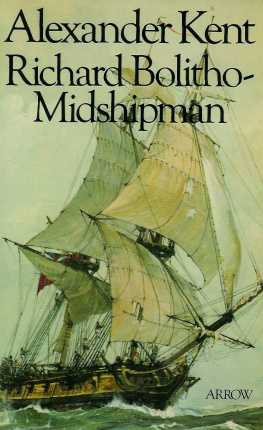Bolitho - KING GEORGE VI
Here you can read online Bolitho - KING GEORGE VI full text of the book (entire story) in english for free. Download pdf and epub, get meaning, cover and reviews about this ebook. year: 1938, publisher: J.B. LIPPINCOTT COMPANY, genre: History. Description of the work, (preface) as well as reviews are available. Best literature library LitArk.com created for fans of good reading and offers a wide selection of genres:
Romance novel
Science fiction
Adventure
Detective
Science
History
Home and family
Prose
Art
Politics
Computer
Non-fiction
Religion
Business
Children
Humor
Choose a favorite category and find really read worthwhile books. Enjoy immersion in the world of imagination, feel the emotions of the characters or learn something new for yourself, make an fascinating discovery.

KING GEORGE VI: summary, description and annotation
We offer to read an annotation, description, summary or preface (depends on what the author of the book "KING GEORGE VI" wrote himself). If you haven't found the necessary information about the book — write in the comments, we will try to find it.
KING GEORGE VI — read online for free the complete book (whole text) full work
Below is the text of the book, divided by pages. System saving the place of the last page read, allows you to conveniently read the book "KING GEORGE VI" online for free, without having to search again every time where you left off. Put a bookmark, and you can go to the page where you finished reading at any time.
Font size:
Interval:
Bookmark:




GBPTCXGHT, 1938, BY * HECTOR BOUTHO
MADE IN THE
UNITED STATES OF
AMERICA
FIRST EDITION
ro R. w.
CONTENTS
I CHILDHOOD 15
II EDUCATION 27
III WAR 47
IV FROM THE NAVY TO THE AIR FORCE 73 V LEARNING TO FLY 101
VI CAMBRIDGE in
VII INDUSTRIAL WELFARE 129
VIII QUEEN ELIZABETH 149
IX THE KING'S MARRIAGE 167
X THE "Duo OF YORK'S CAMP" 179
XI THE KING AND THE COMMONWEALTH 195
XII THE OLD ORDER CHANGETH 207
XIII THE CORONATION 227
KING GEORGE VI AT His DESK, BUCKINGHAM PALACE
Frontispiece
QUEEN VICTORIA WITH FOUR GREAT<^NIX;HILDREN, 1900 20
PRINCE ALBERT AS A MIDSHIPMAN 36
THE DESPATCH FROM H.M.S. "COUJNGWOOD" AFTER JUTLAND (3 PAGES) 66
RAUCEBY COTTAGE, NEAR CRANWELL 88
THE DUKE OF YORK CHATTING TO MR. D. MELBURN, 1921 106
THE DUKE OF YORK AND EX-PRESIDENT TAFT, CAMBRIDGE, 1922 120
THE DUKE OF YORK CHATTING TO LT.-COL. G. LOWTHER, 1929 150
THE DUKE OF YORK ARRIVING AT THE HORSE GUARDS PARADE, 1929 168
THE DUKE OF YORK PLAYING GOLF, 1924 180
THE DUKE OF YORK AT WIMBLEDON, 1926 184
KING GEORGE VI AT CHRIST CHURCH BOYS* CLUB, 1937 190
THE DUKE OF YORK RECEIVING KING GEORGE V AT THE RICHMOND HORSE SHOW 198
THE DUKE AND DUCHESS ARRIVING AT ST. KILDA, AUSTRALIA 202
THE DUKE AND DUCHESS DRIVING TO EDINBURGH CATHEDRAL 204
AT GLAMIS CASTLE, 1931 212
PRINCESS ELIZABETH AND PRINCESS MARGARET ROSE 248
CHILDHOOD
"My soul, sit thou a patient lool(er-on f
Judge not the flay before the play be done. Her plot hath many changes; every day
Speaks a new scene, the last act crowns the play"
QUARLES
Chapter I CHILDHOOD
IN the summer of 1840 the Prince Consort wrote to his brother in Germany of the "chains of matrimony" which bound him to Queen Victoria. "The heavier and tighter they are, the better for you," he said. "A married couple must be chained to one another, be inseparable, and they must live for one another." In another letter he wrote of the time when contentment first came to his family life: "I Wish you could be here and see, in us, a couple joined in love and unanimity. Now Victoria is also jeady to give up something for my sake, I everything for her sake."
The cynicism of a new, lively century has made these laws of marriage unfashionable, but it has not made them untrue. However casually they may be itreated by fashionable idlers, they still hold their 'own with ordinary people and with those princes who care for their responsibilities and who are jeal
ous of their integrity. The rules of marriage and the example in domestic virtue which Prince Albert set, almost one hundred years ago, have become the abiding law of the members of the British Royal Family. They accept this law as the test of their worthiness and they rise and fall according to their allegiance to it. It has strengthened their hold on the affection of their Empire during years when almost every other royal house has fallen or grown weak. British people believe in the example of "a couple joined in love and unanimity" whether they live within Buckingham Palace or rest in their slippers beside the fire of some little cottage in Somerset. The belief persists in English life, and it is especially stidteig in time of political agitation or warlike fl^pfise. British princes value their fair domestic wreaths as much as their crowns, and the example set by them has proved itself to be a greater stimulus to domestic contentment than the promises made by dictators in those countries which are torn by experiments in government.
As she grew older, Queen Victoria was out of temper with marriages planned for political reasons. The union of her eldest daughter with the Crown
Prince of Prussia had brought her little happiness, and she lived long enough to be alarmed over the erratic ambitions of her German grandson. The marriage of Prince Alfred to a daughter of the Tsar of Russia had been disappointing: it had not lessened Russia's appetite for India, nor had it healed the wounds of the Crimea. Queen Victoria accepted and valued her lesson. Some years afterwards, when the marriages of her grandchildren were planned, she wrote of her happiness because her grandson had chosen a bride in England, instead of among the courts of Europe. "Thank God! Georgie has got such an excellent, useful and good wife," she said. There was no longer any hankering after grandness among the nations, or diplomaC* ! gains. She turned from ambition to recognise the value of "a couple joined in love and unanimity." Remembering the years of her own safety and happiness, she was satisfied.
Queen Victoria's grandson, George, Duke of York, lived at White Lodge, in Richmond Park The domestic scene within this enchanting, secluded house had already been enlivened by the birth of three children. In June of 1894 Prince Ed
ward had been born. The Queen had driven over to see the "fine, strong-looking child," and, in July, she had crossed to Surrey once more for his christening, a ceremony which was celebrated in the photograph of "The Four Generations." Queen Victoria held the baby on her lap, with "Bertie and Georgie" standing behind her. In April of 1897 the Queen had written once more in her Journal, "Heard from Georgie that May had given birth to a little girl, both doing well." Between the birth of these children, and scarcely noticed in the Queen's Journal or in the records of the time, Prince Albert was born. He came into the world on a sad day, the thirty-fourth anniversary of the Prince Consort's death. All the old sorrow against which the Queen had fought so valiantly in recent years, seemed to return and hurt her once more. She wrote in her Journal, on December I4th, 1895:
"This terrible anniversary returned for the thirty-fourth time. When I went to my dressing-room found telegrams from Georgie and Sir J. Williams, saying that dear May had been safely delivered of a son at three this morning. Georgie's first feeling was regret that this dear child should be born on such a sad day.
"I have a feeling it may be a blessing for the dear little boy, and may be looked upon as a gift from God!'*
Two days afterwards, Queen Victoria was consoled. In the midst of dreadful news of the massacre of the Armenians in Turkey, she received "a dear letter from Georgie" which gave her "the greatest pleasure." It told her that "they intended the baby to have die name of Albert."
A fierce sense of monarchic responsibility always seems to interfere with the natural affection between a royal father and his elder son. There are few instances in history of sovereigns and their heirs being able to preserve their filial devotion against the unique anxiety which harasses them in connection with the succession. We may turn back to the story of Maria Theresa and her son Joseph; we may look owards Prussia early in the eighteenth century and narvel over the relationship between Frederick and bis father. We may come nearer to our own story and recall the early distress which douded Queen Victoria's appreciation of her heir. The theme persists through history, up to our own time, and we may be thankful that King George VI was born a second son and that he was able to grow quietly
Font size:
Interval:
Bookmark:
Similar books «KING GEORGE VI»
Look at similar books to KING GEORGE VI. We have selected literature similar in name and meaning in the hope of providing readers with more options to find new, interesting, not yet read works.
Discussion, reviews of the book KING GEORGE VI and just readers' own opinions. Leave your comments, write what you think about the work, its meaning or the main characters. Specify what exactly you liked and what you didn't like, and why you think so.


